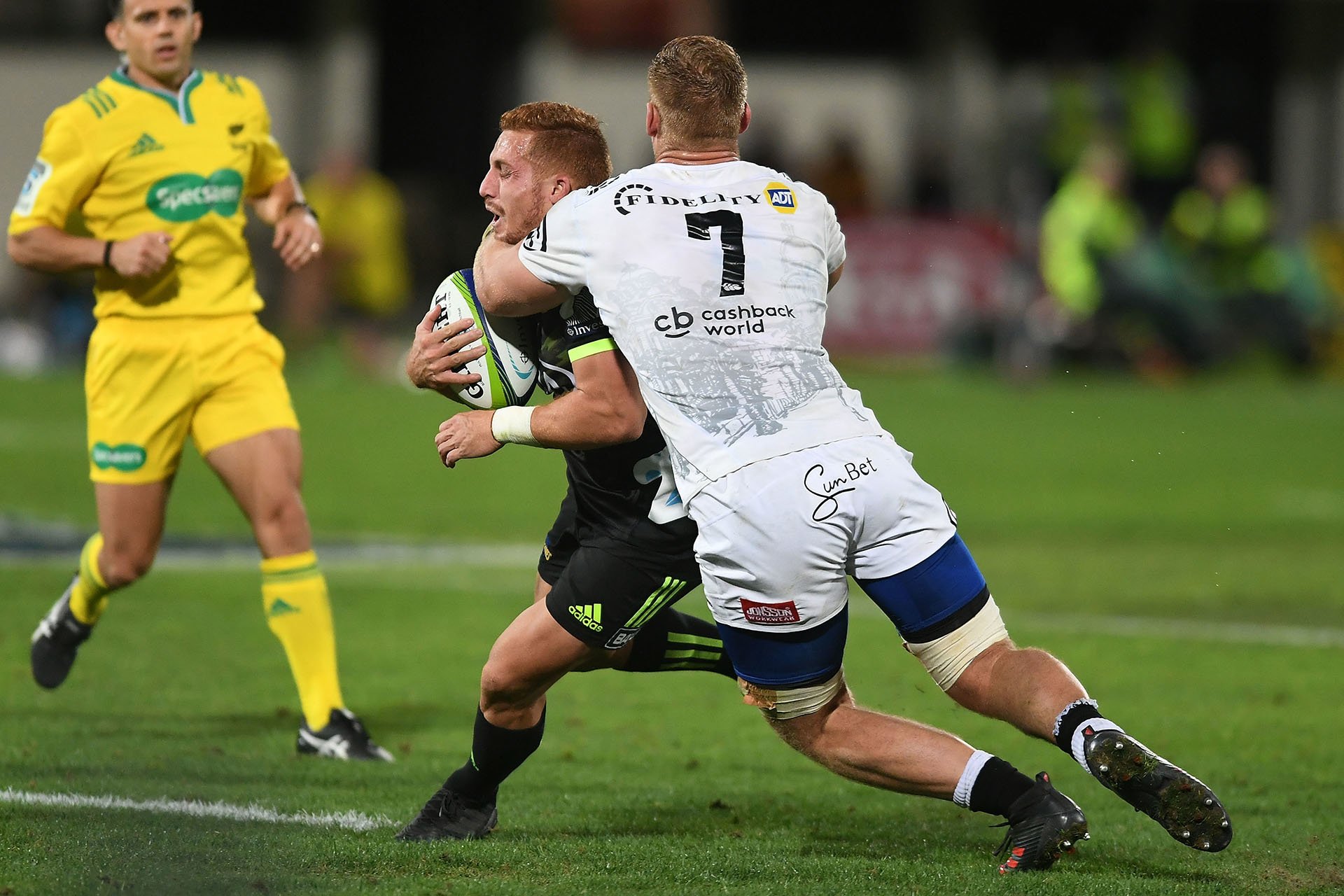World Rugby has announced it will trial tackle law changes during upcoming men’s international under-20s competitions. Changes include lowering the height of tackles to “below the nipple line” to reduce the risk of head injuries.
World Rugby said in a statement that the latest comprehensive research has determined that tacklers who are upright are at the greatest risk of head-injury. The trials are designed to change player behaviour by getting the tackler to attempt lower tackles and therefore lower the risk of injury.
World Rugby state that after conducting ‘unprecedented research from more than 1,500 elite matches’, 76 percent of head injuries occur in the tackle and 72 per cent of head injuries in the tackle occur to the tackler.
There will be two trial approaches. At the U20 Championship in France (30 May – June 17), a High Tackle Warning will be issued if the tackler is upright (i.e. not bent at the waist when tackling), and there is clear and obvious head contact for either player. This will be policed by both the match officials and the citing commissioner. When two high tackle warnings have been issued, a player will automatically receive a one-match suspension.
At the U20 Trophy (location and dates TBC), an amendment to Law 9.13 will operate, altering the definition of a high tackle from above the line of the shoulders to above the nipple line.
Law 9.13 will read: “A player must not tackle an opponent early, late or dangerously. Dangerous tackling includes, but is not limited to, tackling or attempting to tackle an opponent above the nipple line even if the tackle starts below the nipple line.”
Continue reading below
A detailed analysis of each trial compared to data from the current global environment and previous World Rugby age-grade tournaments will enable the governing body to inform a possible game-wide approach to this priority area.
World Rugby Chairman Bill Beaumont said: “As a rugby father with sons playing at the elite and community level, I am committed to ensuring that rugby remains at the forefront of injury-prevention, specifically in the priority area of concussion.
“As a sport we have collectively made excellent progress in the programmes and initiatives that have been implemented and they are benefiting players at all levels. This trial builds on the success of lowering of the acceptable tackle height and furthers rugby’s commitment to ensure that high-risk tackles, identified through unprecedented research, are eradicated from the game, by removing contact between the tackler’s head and the head of their opponent.”
In other news:




























